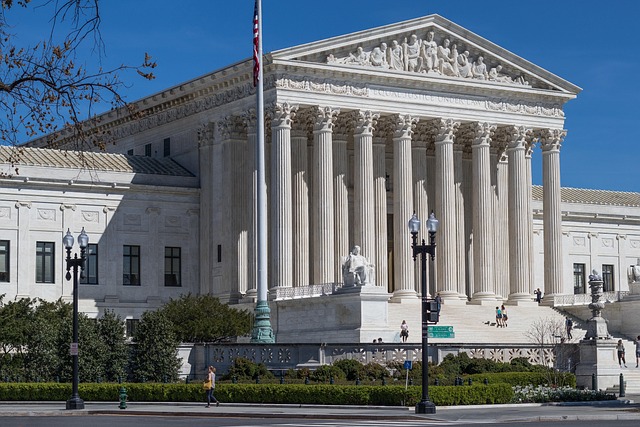
More Thoughts on NCN Litigation and Nationwide Injunctions
05.05.2025 | Linda J. Rosenthal, JD

Back in 2016, the Omaha World-Herald ran a devastating series of articles about Goodwill Omaha, the well-known 501(c)(3) that is one of Nebraska’s biggest charities.
Perhaps the most damaging element in this expose was the compensation level of the group’s top executives: They were the highest paid of Goodwill organizations in the United States at the same time that the workers of the thrift shop giant were paid minimum wage. In 2014, for instance, CEO Frank McGree earned almost $935,000 in total compensation. Other executives earned over $100,000 a year, although data show that the agency was serving a steadily declining number of people.
Among those taking notice two years ago was Nebraska’s attorney general, Doug Peterson. “Our investigation of Goodwill Omaha began following a series of articles about the organization….which raised a number of questions about whether Goodwill Omaha was being operated appropriately as a nonprofit corporation ….The questions raised about possible misconduct were serious and warranted a closer look.”
After two years of scrutiny and scandal, the probe ended with significant changes and corrections by the organization under new management. (CEO McGree had been forced out in 2016, but he filed a federal lawsuit claiming that Goodwill Omaha still owed him more than $1 million in severance payments and retirement benefits.) The board signed a formal agreement to change “how it recruits board members, awards bonuses and makes large purchases.” While the investigation was ongoing, the charity made changes to the size and structure of the board.
Attorney General Peterson issued a final, 50-page, report in late June 2018; the full text is here. At a news conference to announce the findings of his office’s investigation, AG Peterson said: “It’s clear that Goodwill lost focus on what their true mission was.”
The report, which includes a section of detailed facts and relevant history, is accompanied by a Consent Judgment filed with the court for “a number of remedial actions …to ensure the AG’s concerns are addressed” and “future compliance” with the law.
The Attorney General’s report begins with a multi-page Executive Summary describing 5 key problem areas of Goodwill Omaha that existed at the beginning of the investigation.
The Attorney General’s Office concluded the Board was “negligent in its oversight of the organization.” The problems “were largely related to …McGree and his executive team. The Board…should have been better informed of the organization’s precarious financial status, mission drift, and collapsing morale and taken far stronger action to prevent and remedy those issues.”
In addition, there was a serious morale problem. “Goodwill Omaha’s continued focus on increasing revenues and profits, rather than on mission work and people served, was not lost on its employees.”
AG Peterson said the salary issues fell into a”legal gray area”: [I]t’s difficult for us to come in and say they crossed the line.” But he argued that the board should have based executive salaries on the number of people served instead of revenues.
The report recommended the AG Office’s publication titled Best Practices for a Nonprofit Organization, available at ago.nebraska.gov and protectthegoodlife.nebraska.gov.
The Attorney General of Nebraska explained that his office’s investigation had “focused largely on Goodwill Omaha’s board, and not its executives, because state law limits his authority to investigate executives. He said lawmakers should consider changing the law to give him that power.” He has “confidence in Goodwill Omaha’s new leaders,” describing the charity as “a completely changed and properly directed organization.
Peterson decided not to pursue criminal charges or to try to get back any of the “payments awarded” to former CEO Frank McGree. (The McGree lawsuit was settled as part of the overall conclusion to the probe.)
